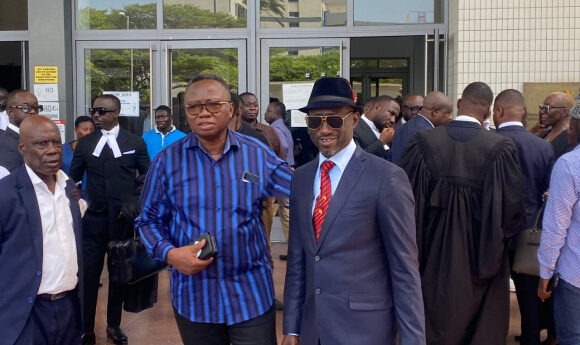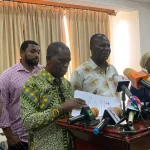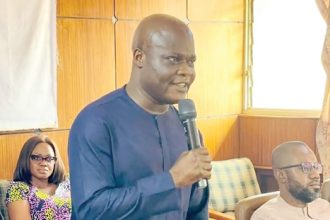An Accra High Court has admitted into evidence the 68 WhatsApp messages sent by Richard Jakpa, the third accused in the ongoing ambulance trial, to Attorney General Godfred Yeboah Dame.
Additionally, the court admitted the two responses from the Attorney General to Mr Jakpa.
The trial judge, Justice Afia Serwah Asare-Botwe, noted that the court had previously admitted WhatsApp chats from Mr. Jakpa, making it consistent with accepting what the prosecution described as the complete conversation.
However, she emphasized that the court reserves the right to determine the weight of the evidence presented.
Director of Public Prosecutions (DPP) Yvonne Atakora Obuobisa highlighted the significant number of messages sent by Mr Jakpa in contrast to the limited responses from the Attorney-General.
The DPP sought to introduce all of Mr Jakpa’s WhatsApp messages into evidence.
Mr. Jakpa admitted under cross-examination that he had introduced himself to the Attorney-General before the trial and obtained his contact information through his cousin, Supreme Court Judge Justice Yonny Kulendi.
He acknowledged that the messages presented in court were selectively chosen for their relevance to his case and did not represent the entire conversation.
Counsel for Mr Jakpa, Thaddeus Sory, objected to submitting the entire WhatsApp conversation, arguing that the defence needed more time to review the messages thoroughly.
Despite these objections, the court admitted the complete WhatsApp chats from the Attorney-General into evidence.
Justice Asare Botwe concluded by reiterating that the admission of the messages does not preclude the court from assessing their relevance and impact on the case.
The businessman, Mr Jakpa, is standing trial with Minority Leader Cassiel Ato Forson for causing the state a €2.3 million loss in an ambulance deal.
The accused persons are to answer five counts of wilfully causing financial loss to the state, abetment to wilfully causing financial loss to the state, contravention of the Public Procurement Act, and intentionally misapplying public property.
















